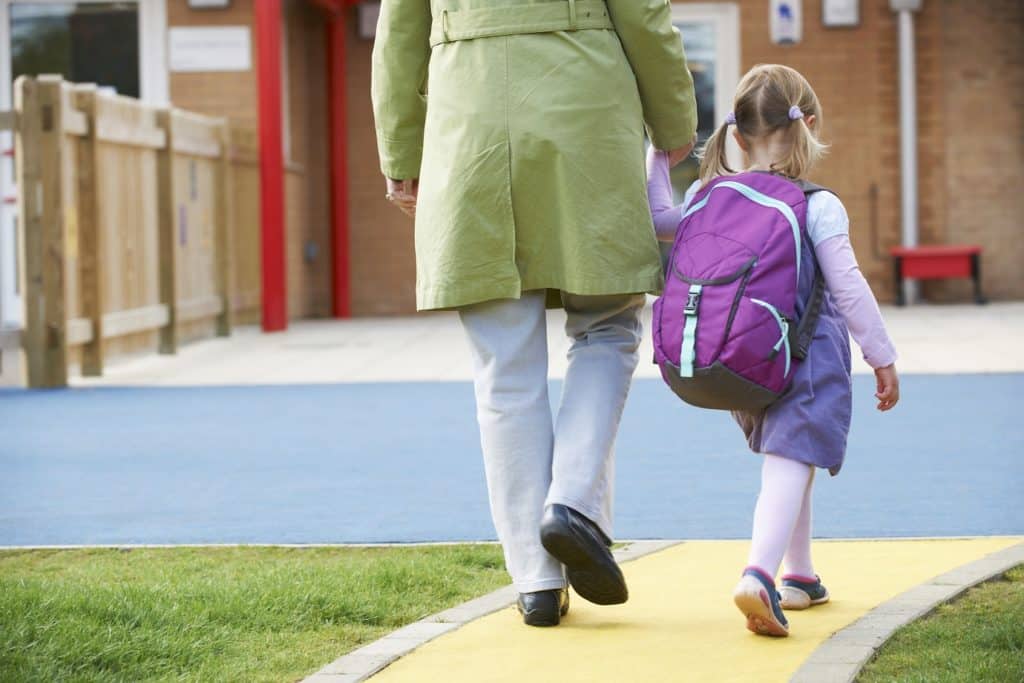A new national poll shows more than 90 per cent of families in rural and regional Australia say the cost of childcare has skyrocketed over the past three years, compared to 86 per cent of families in metropolitan regions.
Families from rural and regional Australia are disadvantaged when it comes to childcare, according to the Early Learning Monitor’s survey with more than 4,500 respondents, conducted by Essential Research for Minderoo Foundation’s Thrive by Five initiative.
Due to high costs, 88 per cent of families in regional Australia don’t send their children to early childhood education and care or limit how long they send them, compared with 86 per cent of metropolitan families.
And 79 per cent of parents in regional Australia said the cheaper access to good quality childcare would help their families.
Thrive by Five Director Jay Weatherill said their poll “clearly illustrates childcare affordability and accessibility are key issues for families with young children in rural and regional Australia.”
“Families living outside Australia’s major cities are struggling both with exorbitant fees and inexcusably long wait lists to access childcare in the first place.”
Weatherill adds that “high out-of-pocket costs make it harder for parents to return to work and prevent children accessing the lifelong benefits that arise from participation in high quality early learning.”
Related to accessibility, extreme scarcities of early childhood education and care are more likely to be in regional areas, according to Victoria University. Approximately 61 per cent of families in outer regional areas and 85 per cent of families in remote areas of Australia facing childcare deserts, compared with 29 per cent of families in major cities.
Chief Executive Officer of The Parenthood, Georgie Dent commented on these statistics saying: “It is inexcusable that in one of the richest countries in the world, we have families living in areas with such scarce access to early learning and care that they’re deemed to be childcare deserts.”
“The early years of a child’s life are some of the most important in their developmental journey and early education is vital for giving children the best start in life,” said Dent. “Every child in every postcode should have the same opportunity for early learning.”
Families in regional and remote Australia are also having to navigate education systems that aren’t exceeding national standards.
Less than one-quarter of early childhood education and care facilities in disadvantaged areas are exceeding the standards set in place by The National Quality Framework, according to data recently released by the childcare sector regulator (the Australian Children Education and Care Quality Authority).
And those that benefit the most from easily accessible, high quality and comprehensive early learning systems are children from disadvantaged backgrounds as they’re more likely to be developmentally vulnerable, according to the Front Project.
Five point action plan
So, what can be done? Along with their research, Thrive by Five has released a five point action plan to guide Federal and state governments in reforming early learning in rural and remote areas of Australia.
The plan includes creating a dedicated funding model, adding early childhood education and care to the National Cabinet reform agenda and creating a new national agreement to deliver universal three-year-old preschool across the country to match the partnership agreement in place for four-year-old preschool.
The action plan also urges governments to make the Child Care subsidy available to all children, lift it to 95 per cent and set agreed fee caps.
And to end the problem of skill shortages, high vacancy rates and high staff turnover rates across the sector, Thrive by Five calls for the start of workforce planning for universal access and fund appropriate pay and flexible conditions for educators.
In Thrive by Five’s polling results, they found that 73 per cent of families in regional Australia support the adoption of universal childcare– up from 69 per cent in 2021– and 74 per cent think a universal early learning system would be beneficial for Australia’s education system.
“There is now ample evidence that there is a childcare affordability and accessibility crisis in rural and regional Australia,” said Weatherill. “We urge the Federal and state governments to prioritise early learning reform in rural and remote areas and support the Thrive by Five five point action plan.”


